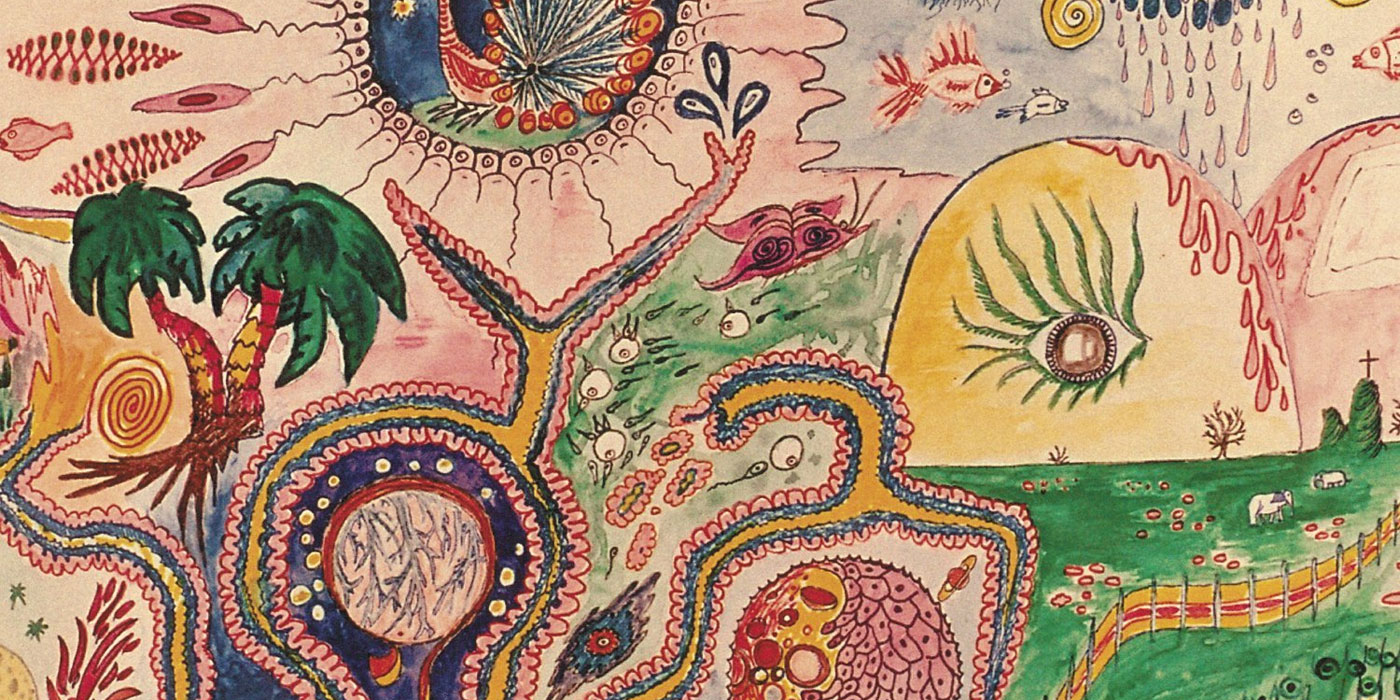On Youth Lagoon’s superb 2011 debut record, The Year of Hibernation, Boise State dropout Trevor Powers channeled his inner anxieties into simple keyboard arrangements that lead into swirling drum machine beats. It’s an innocent, almost naïve sounding album with the ambiance and feel of something recorded in the dim of a dark bedroom, although it was actually largely recorded in a four-car garage. After two years and a tidal wave of positive buzz, Powers has opted to trade in the reverb-laden, emotionally-packed building melodies for jarringly psychedelic arrangements on the aptly titled Wondrous Bughouse. For those who were taken by the sentimental grandiosity of the first album, this may come as a bit of a jolt to the system.
This is in many ways the “tough sophomore album” one might expect from Youth Lagoon. It wouldn’t be fair to criticize Powers for broadening his scope and going in a different direction with his music. After all, Hibernation has such a specific sound, it would seem lazy if he reproduced it on his follow-up — that’s precisely what makes the follow-up to a tremendous first album so difficult.
While the psychedelic oddball pop of Bughouse feels a bit scattered and at times aimless, it does retain some small remnants of the Youth Lagoon signature. “The Bath,” in particular, with its balladic tempo and sudden redirection, sticks closest to the original formula and sounds like a distant cousin to “Montana” or “Cannons.” The rest however, is a big departure in just about every way you could imagine. The opening track, “Through Mind and Back,” is a meandering instrumental of heavy synth pads accompanied by random tones and various other bleeps and buzzes.
Powers’ mouse-like voice is noticeably more pronounced on tracks like “Mute” and the springy-but-creepy “Dropla,” which features the maddeningly repeated “you’ll never die” chorus. “Attic Doctor,” a low point of Bughouse, sounds like a drunken carousel ride at a circus no one wants to go to. “Doctor tells us she couldn’t have babies,” Powers squeals alongside sonic quirks and swirls, juxtaposing dark and bizarre lyrics with playful, lighthearted music. The end product is a mystifying irritation of a song.
The complex orchestration of the album, while interesting at times, really works best on songs like “Third Dystopia” and “Raspberry Cane,” where it is scaled back. On the latter, Powers strikes the perfect balance between the full-fledged experimental direction of the new album and the intimate personality of the last. “Everybody cares / They say love exists / Then what happened to it?” he croons over a subdued piano. In the mesh of lyrics about different dimensions, devils, demons, and pelican men, this one comes closest to giving us any true or straightforward insight into what’s troubling him.
Wondrous Bughouse is a definite statement. It becomes quite clear pretty quickly that Powers is stretching his artistic limbs and venturing into uncharted waters. Unfortunately, the results are fairly uneven and as a whole, the album doesn’t come very close to touching the distinctive world created on his first release. It could be that I’m not quite ready for a psychedelic Youth Lagoon album. More likely though, it’s simply that Wondrous Bughouse is a solid effort by Powers to transform a bit as an artist, and while the results don’t have the same impact as the original, I’ll take it any day over the same thing all over again.[spacer height=”20px”]



